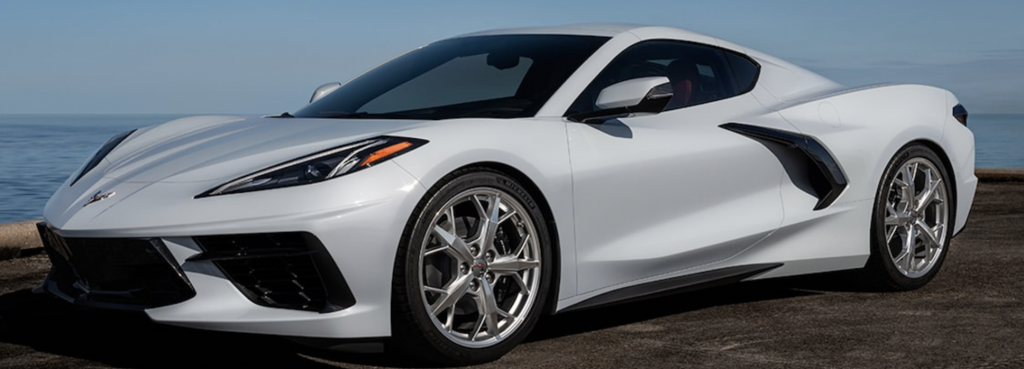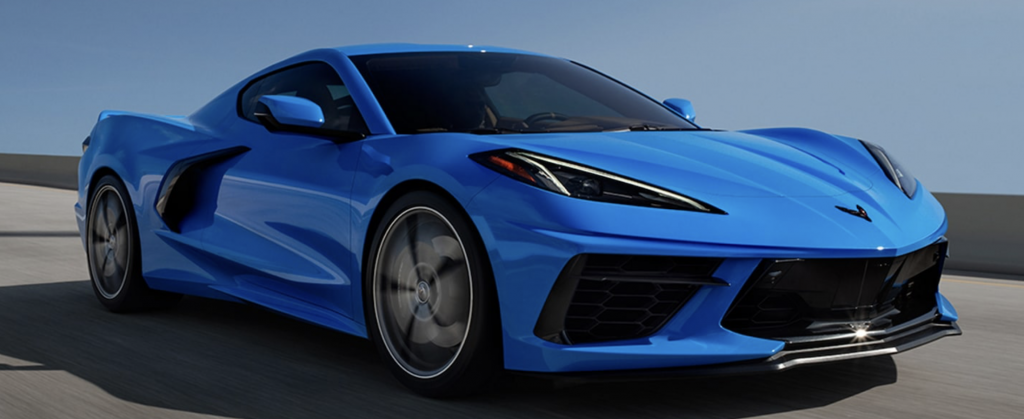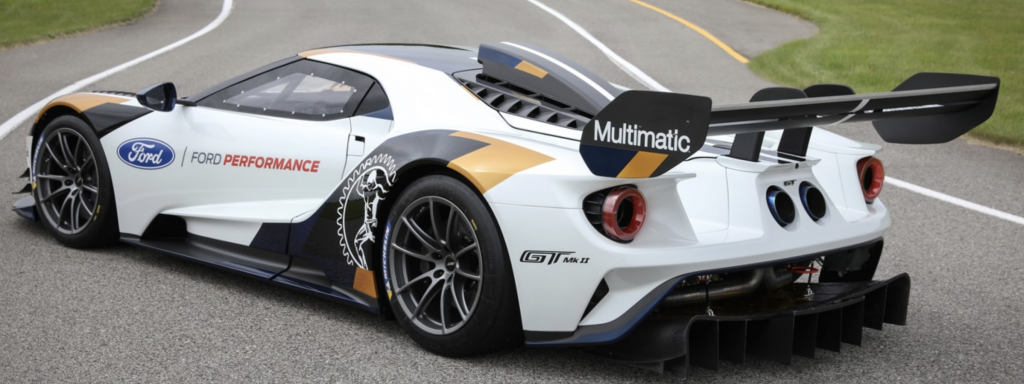Ford GT vs Chevy Corvette: Which Performance Car Is Best?
Ford GT vs Chevy Corvette, find out which iconic performance car really is the best.
This article is more than 2 years old

There are no two ways about it, when you think of the epitome of American performance cars you think of the Ford GT and the Chevrolet Corvette. Both cars are deeply rooted in American automotive culture and both boast devoted followings from their respective groups of drivers. However, if we were to put these two iconic sports car symbols head to head would one really rival the other? Or are the GT and Corvette so evenly matched that it is impossible to discern which would walk away the victor? To find out we looked at the evolution of each and compared what they both have to offer today.
WHICH CAME FIRST?

The Corvette is the older of two classic cars. The idea for the Corvette came out of Chevrolet’s interest in trying to find a way to drum up renewed interest in their brand. They wanted to find an angle to hook a new generation of drivers. The Corvette was the solution they came up with. The Chevy Corvette was first introduced to the world in 1953 as a concept car at GM’s Motorama Show in New York City. Soon after it went into production.
At first sales of the Corvette were slow. However, by the early 1960s, the Corvette saw a steep surge in popularity after being featured on a popular show at the time, Route 66 (1960-1964). After its debut on the show, it quickly came to be known as “America’s Sports Car” Since then it has seen over 60 years of production and 8 different generations of cars.
Some of the most iconic include the C2 or second-generation Sting Ray model (1963-1967) and the C4 or fourth-generation redesign (1984-1996) which marked the first time the Corvette’s body style had been heavily reworked since 1963. More recently notable models include the C7 or seventh generation (2014-2019) that brought renewed interest from a younger demographic to the brand, and the C8 or the eighth and most current generation (2020-Present) whose shift from a front-engine to a mid-engine has allowed the car to become the most powerful Corvette to date.
WHAT ABOUT THE GT?

Up until 2004, the GT was known as the GT-40 and it was first introduced in 1964. Unlike the Corvette, the GT was meant to be a race car and not one to be driven leisurely by the average person. As was partially chronicled in the movie Ford vs Ferrari (2019), The Ford Motor Company commissioned the GT40 to be built so that they could compete at the 24 Hours of Le Mans race in 1964. However, it wasn’t until Carroll Shelby made improvements to the design that Ford was able to successfully do the unthinkable by winning the Le Mans in 1966, which they subsequently repeated three times more in 1967, 1968, and 1969.
Ford seceded from the racing world in 1970 and despite Ford introducing a few concept models, the GT became nothing more than a cherished memory within Ford’s history. That is until the automaker decided to officially revive the revered GT. In 2004 they unveiled the all-new supercar whose design was clearly reminiscent of its iconic GT40 predecessor. The revived GT stayed in production until 2006 before disappearing from the market once again.
In 2016, 50 years after the GT40 had won its first Le Mans race, Ford introduced a completely redesigned version of the GT. The 2016 GT composition was a direct reflection of its earliest racing roots. Whereas the 2004 revival was meant to appeal to the nostalgia of the brand, the 2016 iteration was meant to attract professional racers. And that it did. Five decades after Ford had first seceded from the racing world the GT was back in a form that was a true homage to its earliest days. It dominated Le Mans in 2016 and still continues that tradition today.
HOW DO THE GT & THE CORVETTE COMPARE TODAY?

Today both cars still exist as automotive marvels. To compare the specs, the beast that is GT performs at 647hp and 550 lb-ft of torque. The Corvette comes in at 495 hp and 470 lb-ft of torque. However, Chevy has already hinted towards releasing more powerful iterations in the years to come. In terms of their engines, the GT is powered by a twin-turbo 3.5-liter EcoBoost V-6, and the Corvette boasts an impressive aspirated 6.2-liter push-rod V-8. Both Ford and Chevy claim that their respective vehicles can go from 0 to 60 in a snappy 3 seconds or less. Both cars’ engines are of the advanced automatic type that features multiple driving modes where the gears shift instantly in accordance with the terrain, which might be a turnoff for some die-hard manual enthusiasts.
In terms of color configurations and customizations, there are a decent amount of options with either car. The GT comes in eight different shades as well as eight unique stripe colors including a carbon-fiber option. In terms of the interior, the GT is offered in four different color schemes. The Corvette’s selection is slightly more impressive. There are 12 unique exterior colors that one can choose for the Corvette as well as six different interior choices. What’s really neat, is that you can even customize the seat belt colors inside the Corvette.
Now the real shocker, and the ultimate deciding factor for many, is price. You’ll want to sit down for both, and for very different reasons. The GT, which might not come as a surprise, will run you a hefty $500,000. Hence the advice to sit down. The Corvette’s base model has a starting MSRP for the low low price of $58,900. In the way of performance cars, that is a killer deal.
DRUMROLL PLEASE….AND THE WINNER IS…

Both the GT and Corvette are clearly exceedingly impressive in their own rights. Each car has a rich history that uniquely highlights their individual legacies. That being said, if money is no object and ultimate performance is what you desire at your core then the GT is your soulmate. However, if the price is a factor, and I’m betting for the vast majority it is, then the Corvette with still fulfill many sports car enthusiasts’ expectations and then some with its stellar specs and flashy design. All that’s left to do is buckle up, hit the highway, and smile as you effortlessly skate across the asphalt.









